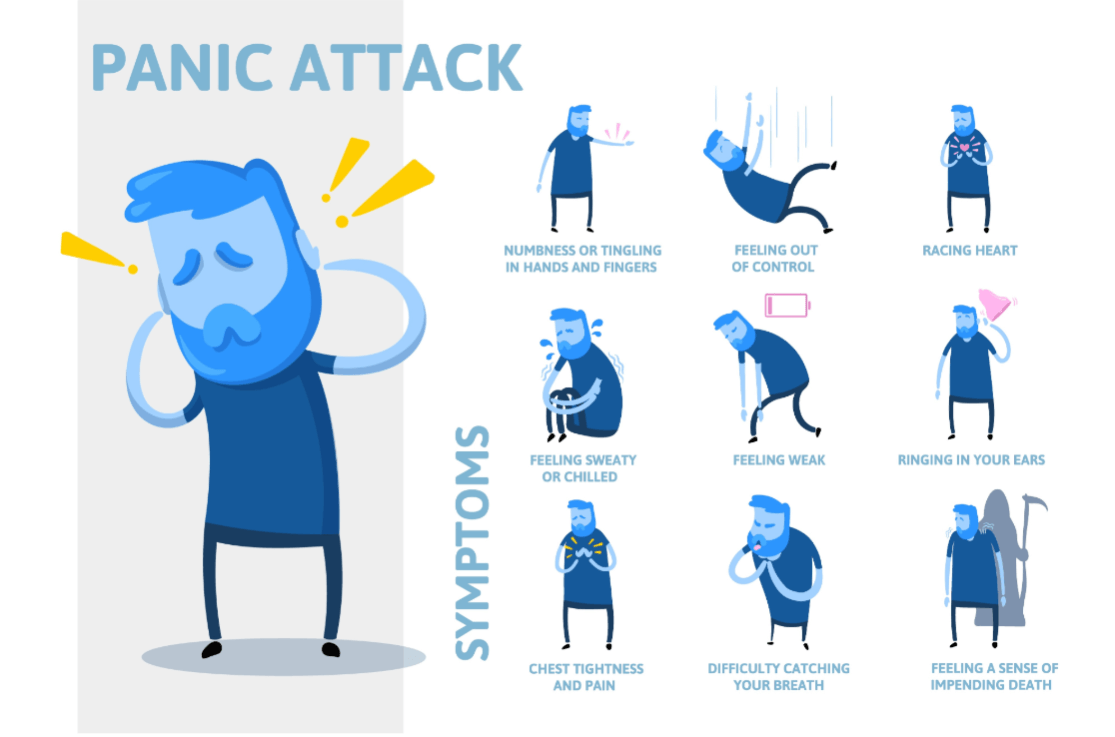Panic attacks can be a terrifying experience, often leaving sufferers feeling helpless and scared. While there are countless medications and therapies available to help treat panic attacks, a growing body of evidence suggests that the practice of mindful breathing can be an incredibly powerful tool for overcoming them. In this article, we’ll explore the benefits of mindful breathing for panic attack (napadaj panike) ssufferers and share some simple techniques that you can start using today to begin feeling more calm, centered, and in control.
1. Mindful breathing reduces physical symptoms.
One of the most debilitating aspects of a panic attack is the physical sensations that accompany it: shortness of breath, heart palpitations, sweating, and dizziness, to name a few. By focusing on deep, intentional breathing, you can significantly reduce these symptoms and bring your body to a more peaceful state. When you breathe mindfully, you’re sending a powerful message to your nervous system that everything is okay and that there is no immediate danger. Over time, through repetition and practice, you’ll be able to train your body to respond to panic attacks in a calmer, less reactive way.
2. Mindful breathing helps you stay present.
When panic attacks strike, they can often feel overwhelming and all-consuming. Sometimes, it can feel as though you’re completely disconnected from reality, lost in a world of your own anxious thoughts. By practicing mindfulness, however, you can learn to stay centered and present in the moment. By focusing on your breath, you’re forcing yourself to be attuned to the sensations in your body, the sounds around you, and your immediate surroundings. All of these things serve as powerful anchors, keeping you grounded and tethered to the present moment.
3. Mindful breathing promotes relaxation and calm.
At the heart of mindfulness is the simple idea of being present. By cultivating a greater awareness of your breath and your surroundings, you’re essentially training yourself to be more relaxed and calm. This can have a profound impact on panic attack sufferers, who often feel powerless and out of control in the face of their anxiety. By practicing mindful breathing, you’re taking an active role in managing your symptoms and reclaiming your sense of agency.
4. Mindful breathing can be done anywhere, at any time.
One of the biggest benefits of mindfulness is its accessibility. Unlike some other treatments for panic attacks, you don’t need to be in a certain setting or have any special equipment to start practicing mindful breathing. You can do it anywhere, at any time: on the bus, at your desk, or even lying in bed at night. By incorporating mindfulness into your daily routine, you can build up resilience and reduce your chances of succumbing to a panic attack.
5. Mindful breathing is simple and straightforward.
Finally, one of the biggest benefits of mindful breathing is its simplicity. Contrary to what some people might think, you don’t need to be a meditation guru to start practicing mindfulness. All you need is a willingness to try and a few simple techniques to get started. By breathing deeply and intentionally, you’re already on your way to a more mindful, centered life.
Conclusion:
In conclusion, mindful breathing is a powerful tool for overcoming panic attacks. By practicing mindfulness, we can reduce physical symptoms, stay present, promote relaxation and calm, practice anywhere, and keep it simple. If you’re a panic attack sufferer looking to take an active role in your recovery or simply looking for a way to improve your overall mental health, we encourage you to give mindful breathing a try. With practice and persistence, you’ll be amazed at the transformative impact it can have on your life.



